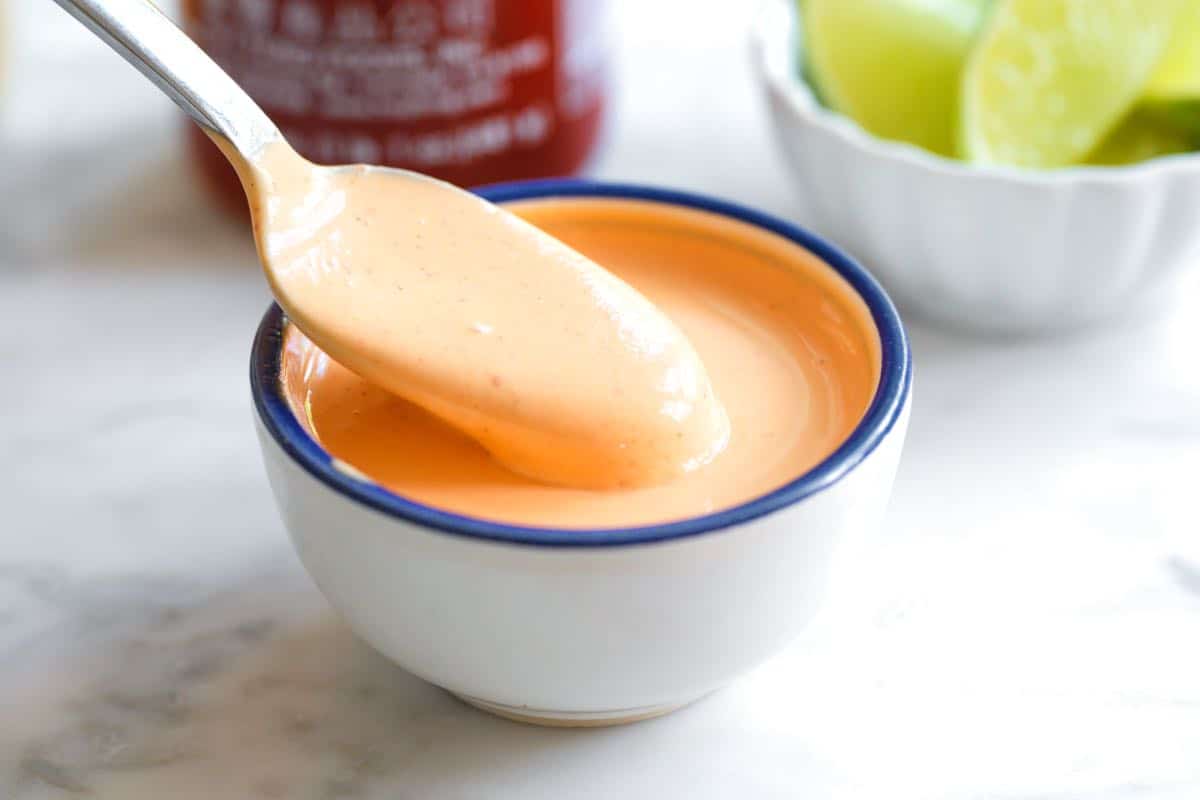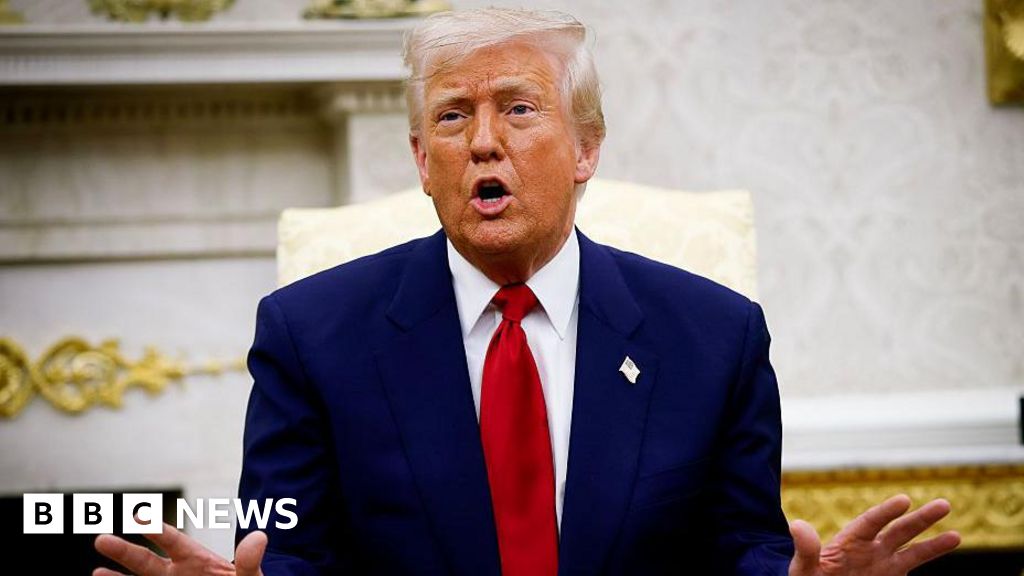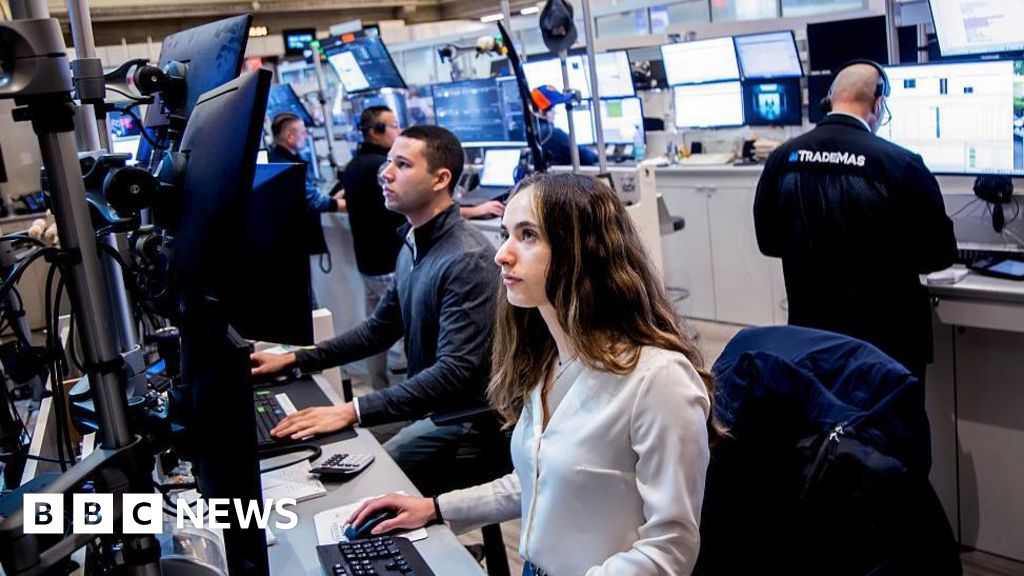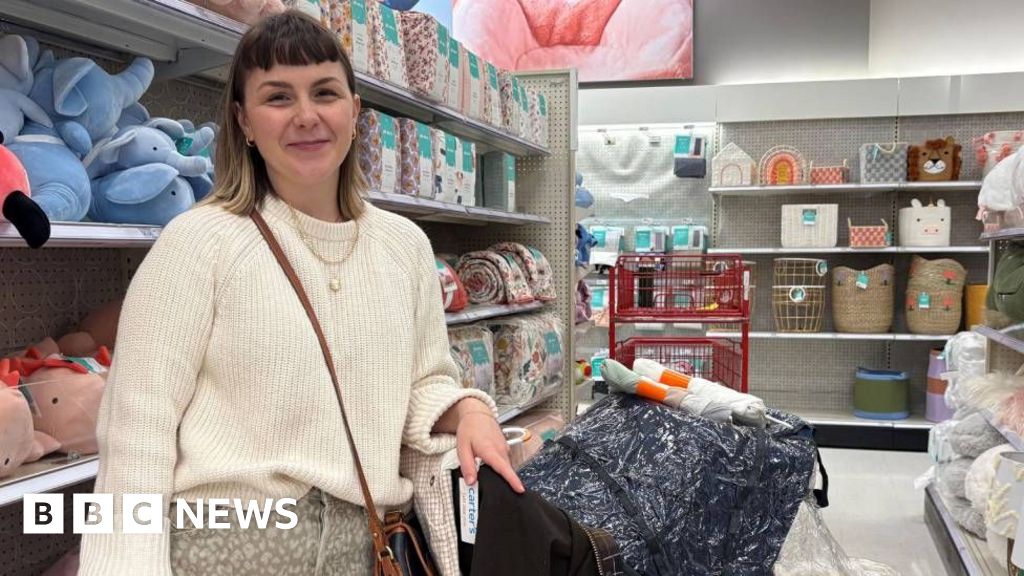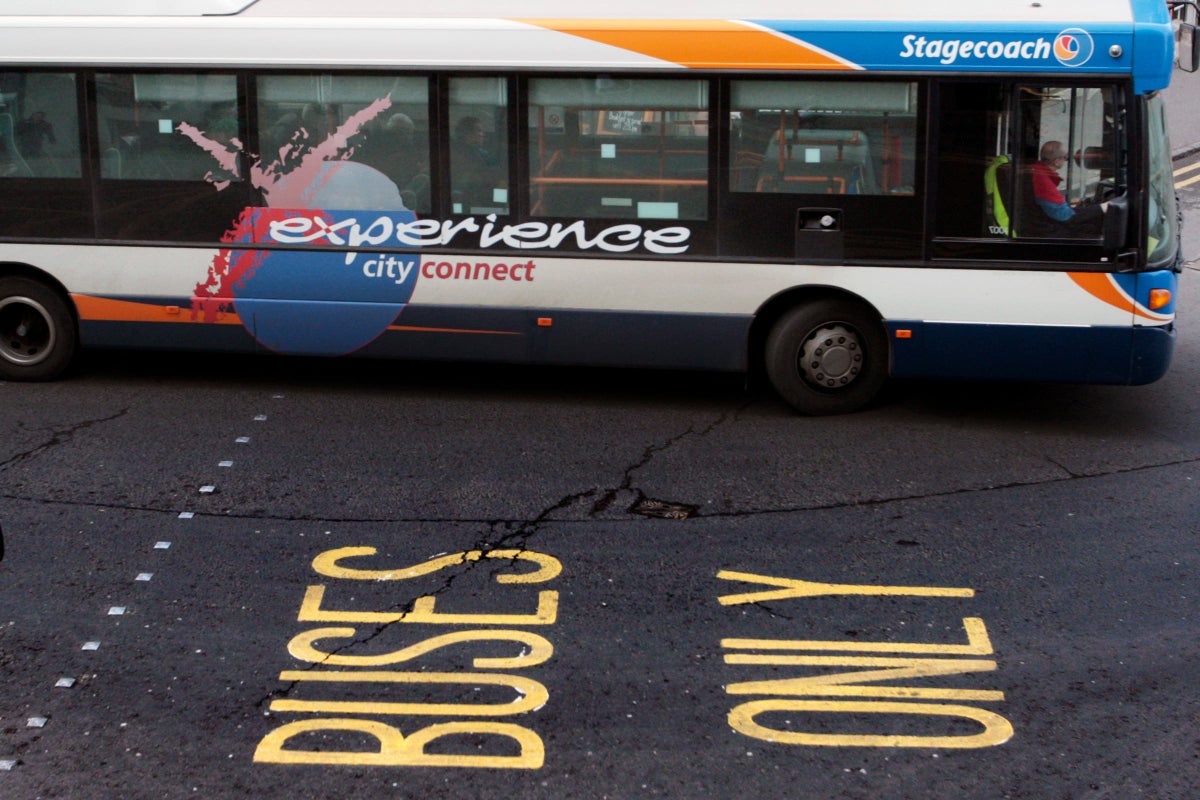These companies invested in being American-made. Tariffs are hurting them, too

Johann Pauwen and Michaele Simmering founded their furniture design business, Kalon, in Los Angeles in 2007. At the time, the U.S. was entering a major recession with many industries headed for total implosion. Pauwen and Simmering, committed themselves to finding local manufacturing relationships and logged countless hours looking for factories that could deliver on their solid wood designs within the United States. It wasn’t an easy process, and the founders had to write their own playbook as they went.
“We really had to beat the streets and find these places on our own,” says Simmering. “Sometimes literally you’d drive past an open roller door, see certain machines or materials, and say, ‘Oh my God, they’re making X, Y, or Z and that’s how we’d find them.”
Now, nearly 20 years in, all of Kalon’s products, except for its baby crib, are made in the U.S. The profitable business supports their family as well as those of their five employees. From the outside, it might appear that Kalon is entirely insulated from the roller-coaster tariff storyline unfolding every day here in the U.S. And to some degree they are: Simmering and Pauwen say their supply chain is strong and reliable and they have few doubts about their ability to deliver their product to customers as expected.
Still, the pair is pretty stressed. They’ve noticed that many of their peers in the industry are losing business and, in some cases, carrying out layoffs. Kalon itself marked its worst sales month in history in April, on the heels of Trump tariff news. “I canʻt believe we built this healthy business out of nothing in a really inhospitable industry: two collapses, a pandemic, and multiple wars,” says Pauwen. “And, a move to domestic manufacturing freaks out the consumer so much, no one will spend money. Maybe that will kill us, even though we’re U.S.-produced.”
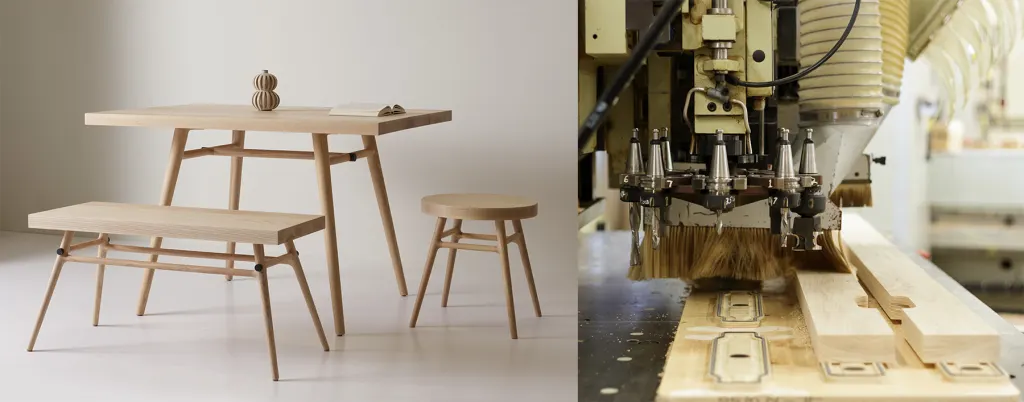
“It’s been an emotional roller coaster”
Pauwen and Simmering represent an ecosystem of founders who’ve invested the time and money to make and sell things in the U.S. They’ve cultivated relationships with mom-and-pop manufacturing outfits. They’ve created jobs in the local economy. They’ve made it work in the name of sustainability and community. And now, as the Trump administration’s wildly shifting tariff policy has shaken the foundation of how so many small and midsize designers do business both abroad and at home, these founders of American-made brands don’t feel any more at ease than their counterparts who sit at the helm of globally produced supply chains.
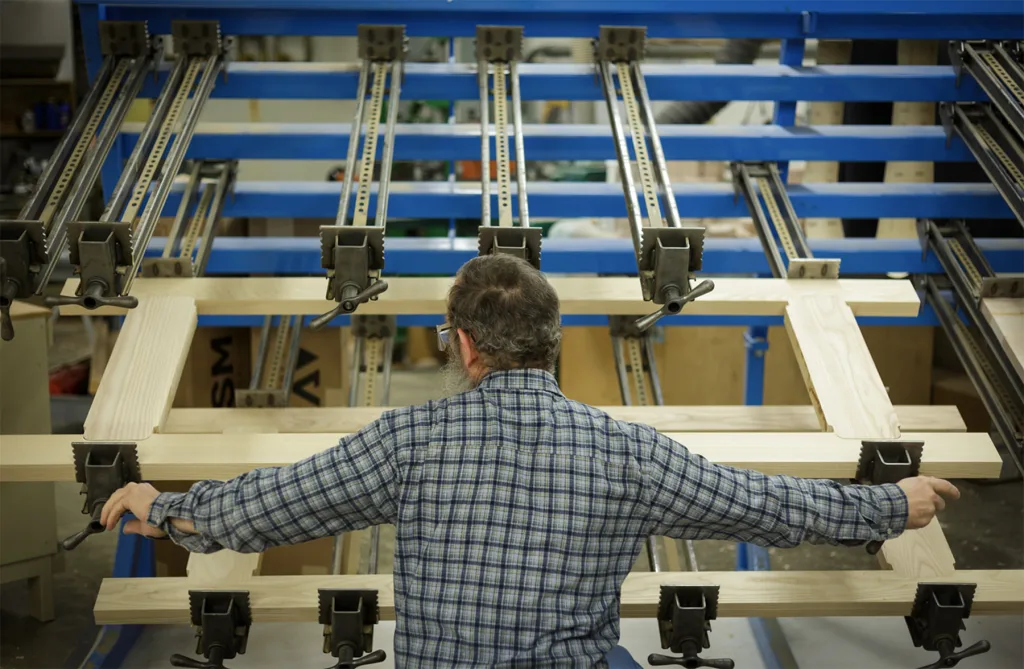
What’s coming next is truly anybody’s guess, and many designers in positions similar to Pauwen and Simmering say they’re just bracing for the next jolt, whether that’s due to consumer insecurity, price swings in raw materials, a dearth of manufacturing options, or something else they’ve not yet considered or experienced.
“It’s been an emotional roller coaster,” says Clare Vivier, founder, CEO and creative director at leather handbag brand Clare V. Vivier’s company, which is based in Los Angeles, sits at the nexus of Trump’s tariffs. She works with five separate manufacturers in L.A., along with 17 manufacturing partners across India, Europe and Asia. The leather and hardware used to make Clare V. bags, says Vivier, come from Italy and Asia respectively. “We’re a great case study of what’s going on,” she says. “Seventeen years into this company, we have 14 stores and are sold in close to 200 shops around the world. Fifty percent of our product is made in L.A. and the other 50 overseas.”
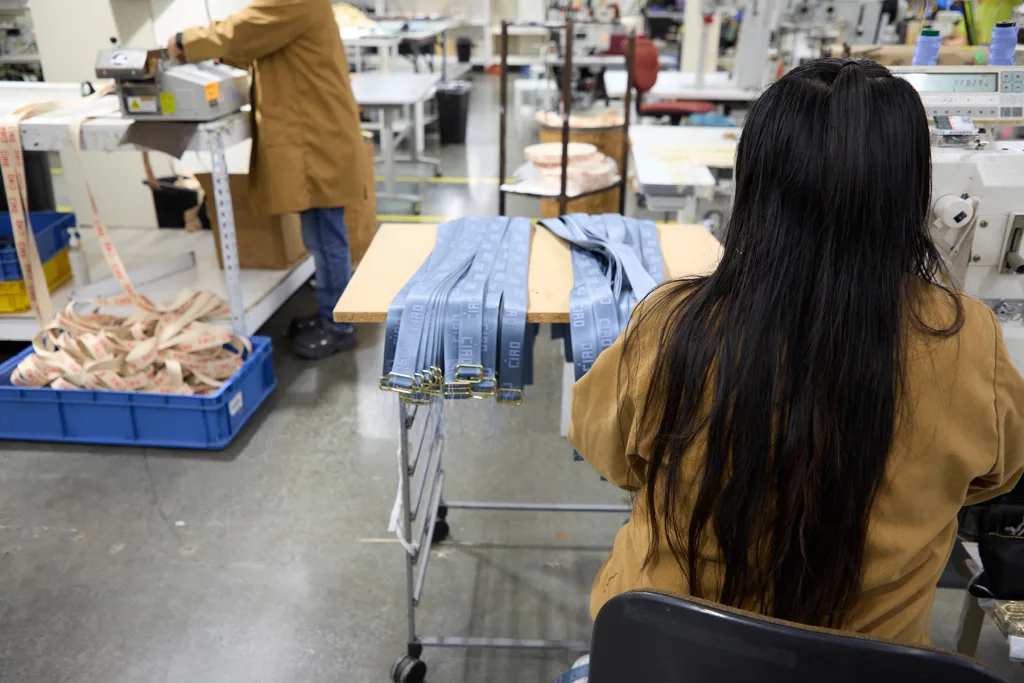
Vivier says she’s structured her business this way out of necessity—to tap into different forms of workmanship. “We don’t have the options to make woven leathers and basket bags here in the U.S.” she says. “Those artisans aren’t here.” If they were, says Vivier, she’d already be using them. These types of skills and jobs, she says, went away years ago, as the industry was retooled for less hands-on, more mechanized manufacturing methods. In other countries, though, artisans (and the infrastructure to train new talent) are still a part of local economies. “These are not widget-producing jobs,” says Vivier. “These are artisans who are trained for many years.”
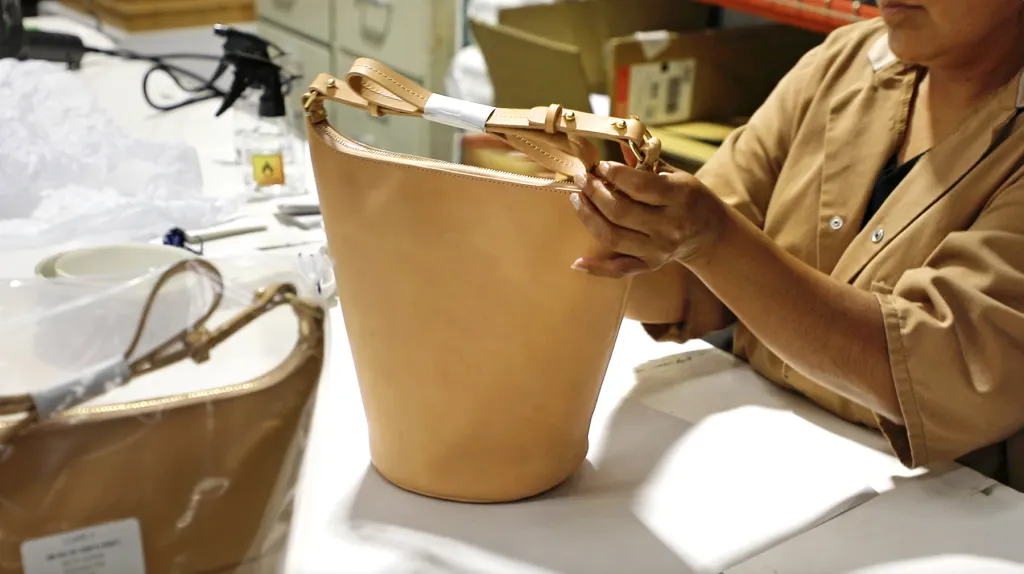
Vivier has considered bringing more of her manufacturing in-house. One of the manufacturing partners she works with in Burbank, California, is family-owned and run, and the owners are looking for a succession plan as retirement nears. But for Vivier, it’s just not in the cards. “We aren’t in the position to be a manufacturing business,” she says, likening the endeavor to the knowledge jump a writer would have to make in order to suddenly buy and run a printing press. “This is a highly specialized industry you can’t expect companies to just jump into. . . . My husband is French and we have a place in France. Vuitton has opened a huge training facility outside of our town there—to train artisans. I think, wow. We just aren’t doing that in the U.S. It would be amazing.”
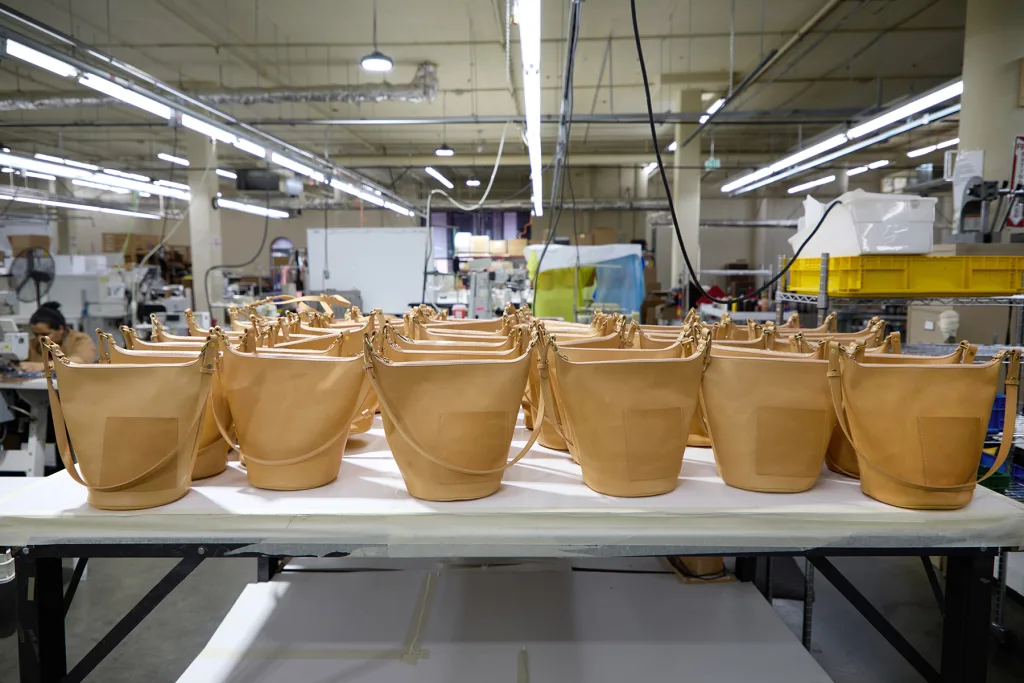
For Simmering and Pauwen, they’ve decided to relocate their crib manufacturing to the United States. And while the decision aligns with their ethos to manufacture in their own communities, it presents a tough balance and some hard decisions around quality and cost. “Producing in Germany is roughly on par with the U.S. in terms of material and labor costs, but the level of craft and know-how is significantly higher there, which means the end product is often of superior quality—a failure of America’s industrial policy,” says Simmering. “The U.S. partner we’re working with [on the crib] was surprised by the quality of our Eastern European production and acknowledged that matching it would be a challenge—and at a much higher cost, at least 150% more.”
The long game of factory building
Some businesses, like East Fork Pottery in Asheville, North Carolina, have built out a manufacturing arm to their business from the start, which has helped hedge the pile-on effect happening with tariffs. Cofounder and potter Alex Matisse says that East Fork makes more than 650,000 pieces of pottery per year in its two factories. “We are relatively insulated,” says Matisse. “Our material supply chain is domestic. Clay isn’t expensive, but we put value into it. Our greatest fear is that if we do slide into a recession, it will impact us all. Building factories takes a long time. It’s hard to think about when confidence is so unsure.”
Tyler Hays, artist and founder at furniture maker BDDW, which owns two of its own manufacturing facilities, says he’s grateful he made the decision to keep all pieces of his business under one umbrella so many years ago. “We have always had the slow business approach,” he says. “And we are patting ourselves on the back a little bit. But the way this is happening is bananas, with no plan. This should have been a five-year-plan. There should have been funding for small businesses; it’s reckless.” One way Hays has been able to thrive during this time is via an auction platform that’s allowed BDDW to circumvent traditional retail altogether, offering up pieces at a discount. Hays says that’s kept consumers engaged and buying: “It’s becoming more popular, but we have seen a 5% reduction in closing price at auction.”
Still, even with the confusion and chaos around tariffs, many of these founders remain deeply passionate about being American-made and revel in the spirit of community and localization it can foster. For CEO Bill Banta at Decked, being American-made is just baked into his company’s brand. Decked designs, makes and sells organizational systems that fit on the beds of pickup trucks. “There’s nothing more American than a pickup truck,” says Banta. “It’s core to the customer and there’s a lot of expectation that comes with an American-made product. Plus what we make is big and heavy and hard to ship.”
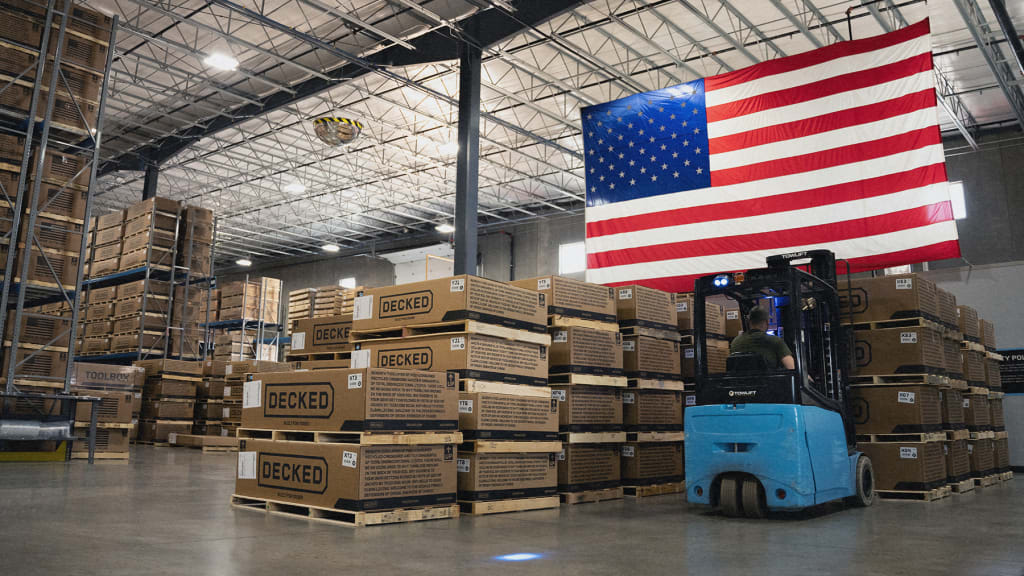
Banta says some of the machines used to make Decked products are as heavy as 737 aircraft, and that as the company has grown, so has its manufacturing capabilities. The business, which is based in Idaho, Utah, and Ohio, now accounts for close to 400,000 square feet of manufacturing space and tens of millions of investment in injection molding.
“We are seeing volatility in raw materials—steel, resin,” he says. “They’ve been all over the place for four or five weeks.” Banta’s focus has been working with suppliers to stabilize pricing as best as possible so the price for a Decked system is the same when customers initially consider it, as when they actually buy it a month later. Additionally, as consumer insecurity dips, so do truck sales, which is directly tied to the Decked value prop. “If that binds up and the automotive supply chain gets whacked by tariffs, we’ll feel that, too.”
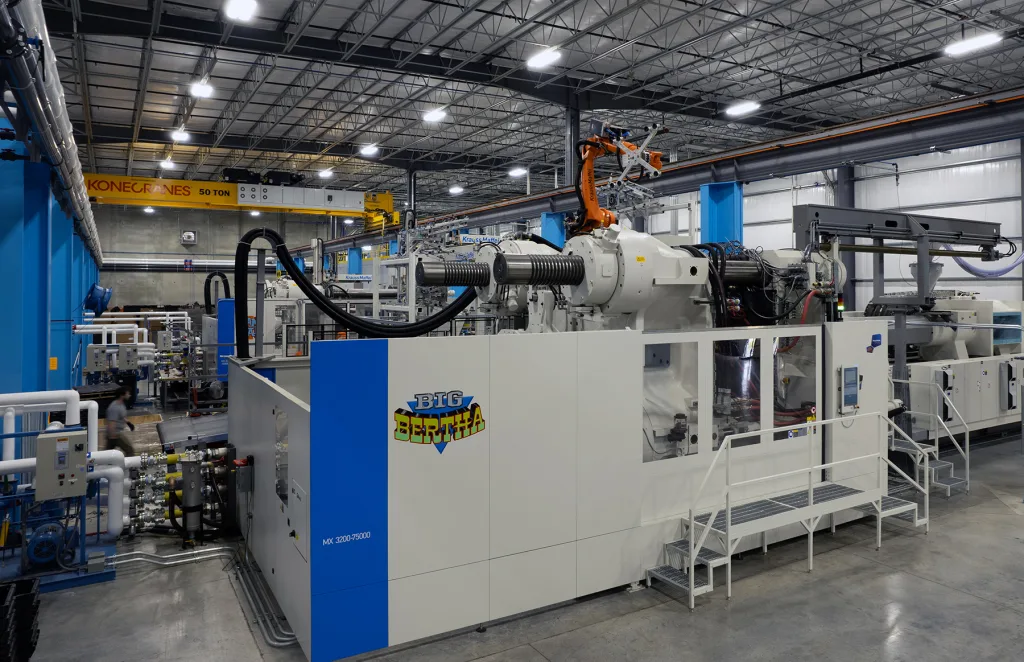
A wholesale shedding of small businesses
For now, says Simmering, it’s too soon to guess what any of this means. “It comes down to the mindset of the consumer,” she says. “Will consumers, at the end of the day, feel it’s more valuable to invest in American-made products? Will the tariffs last? There isn’t clarity. Industrial retooling is expensive and a lot of independent businesses won’t be able to hang in there to see how it shakes out.”
One pivot the Kalon founders have made is to offer consulting services to other American businesses looking to make things here, too. Their goal is to help other founders navigate “the complexities of local sourcing, supply chain restructuring, and sustainability-first practices with insight grounded in our two decades of experience,” says Simmering. “From the beginning, part of Kalon’s mission has been to model a different way of doing things—to build a values-based business that responds to the realities of our time: the global environmental crisis, mass overconsumption, and wasteful production. “This feels like a natural extension of that original intent—taking this as an opportunity to help others navigate this shift and continue working toward transformation from within the industry.”
And while the dust of tariff swings begins to settle, says Pauwen, larger, big box businesses have the resources to relocate their operations to the U.S., pushing smaller companies out of their manufacturing relationships in one swift movement, able to promise bigger manufacturing runs and longer contracts. “At first blush, when the government is saying, ‘We’re in this for the Americans,’ that’s a great impulse,” says Simmering. “I see that we can’t all be titans of industry. We want to have national resources and jobs with integrity and meaning. But the way this seems to be executed, it’s a land grab and happening at the highest levels. There is a wholesale shedding of independent business.”
What's Your Reaction?
 Like
0
Like
0
 Dislike
0
Dislike
0
 Love
0
Love
0
 Funny
0
Funny
0
 Angry
0
Angry
0
 Sad
0
Sad
0
 Wow
0
Wow
0
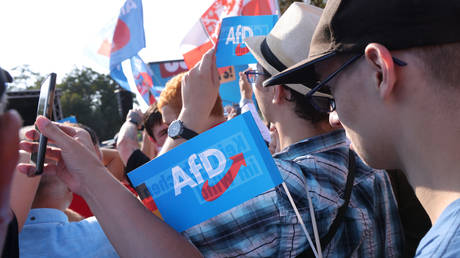









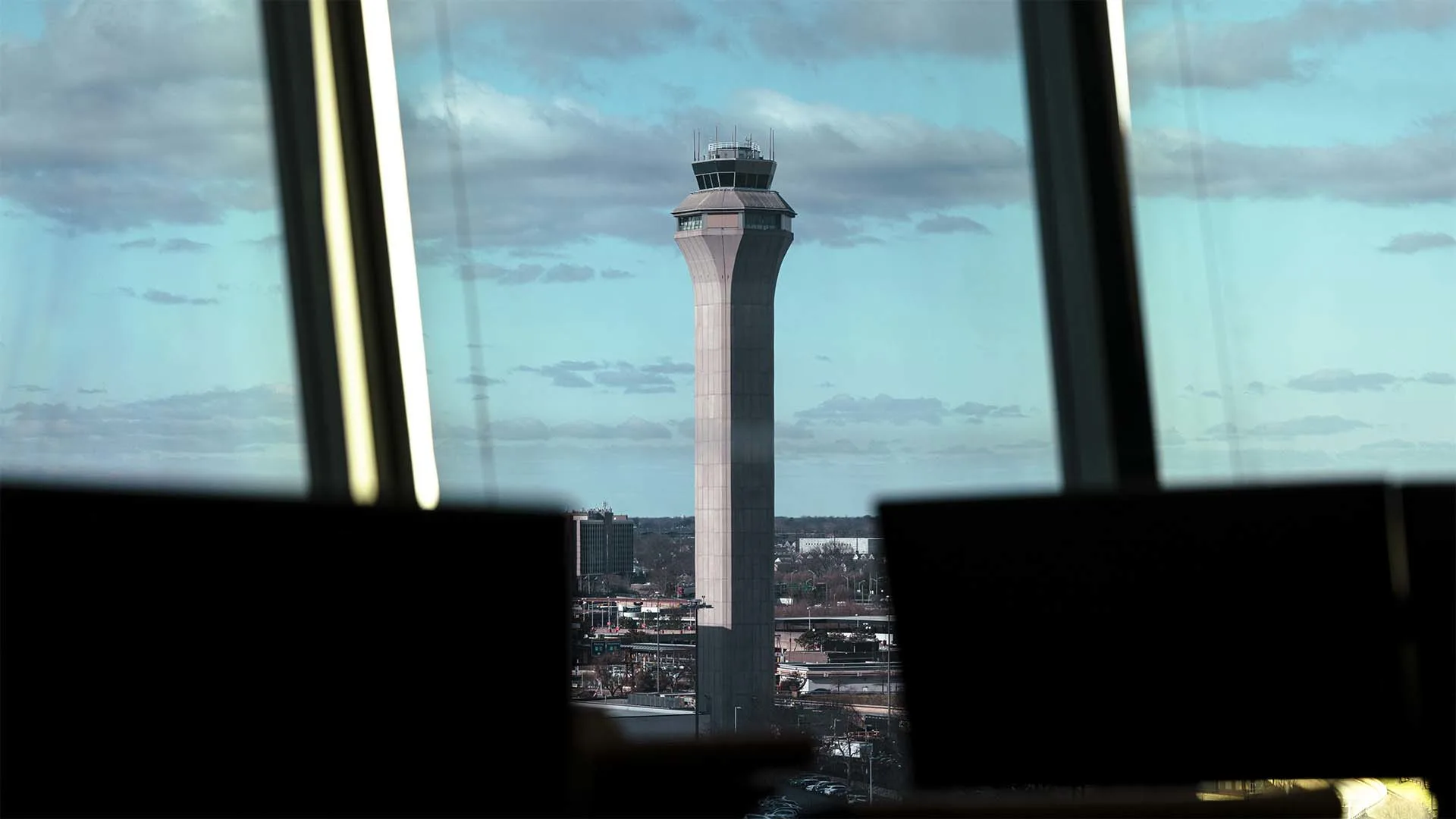

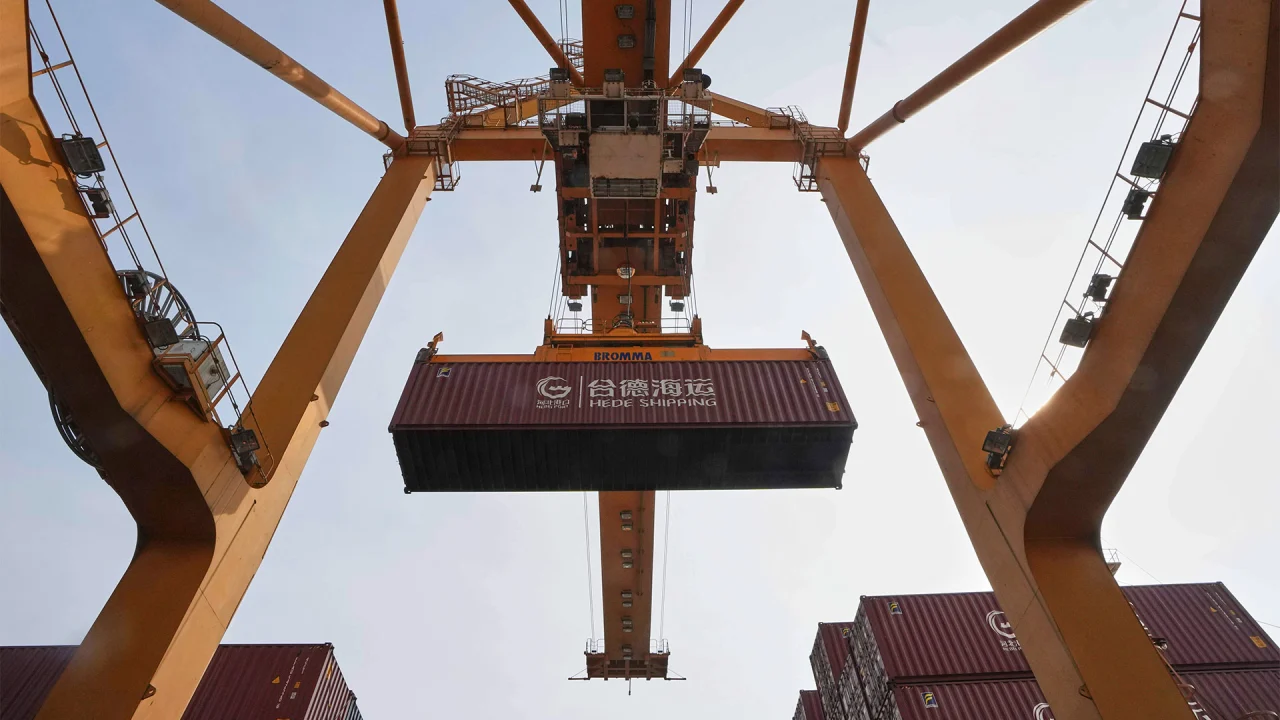

























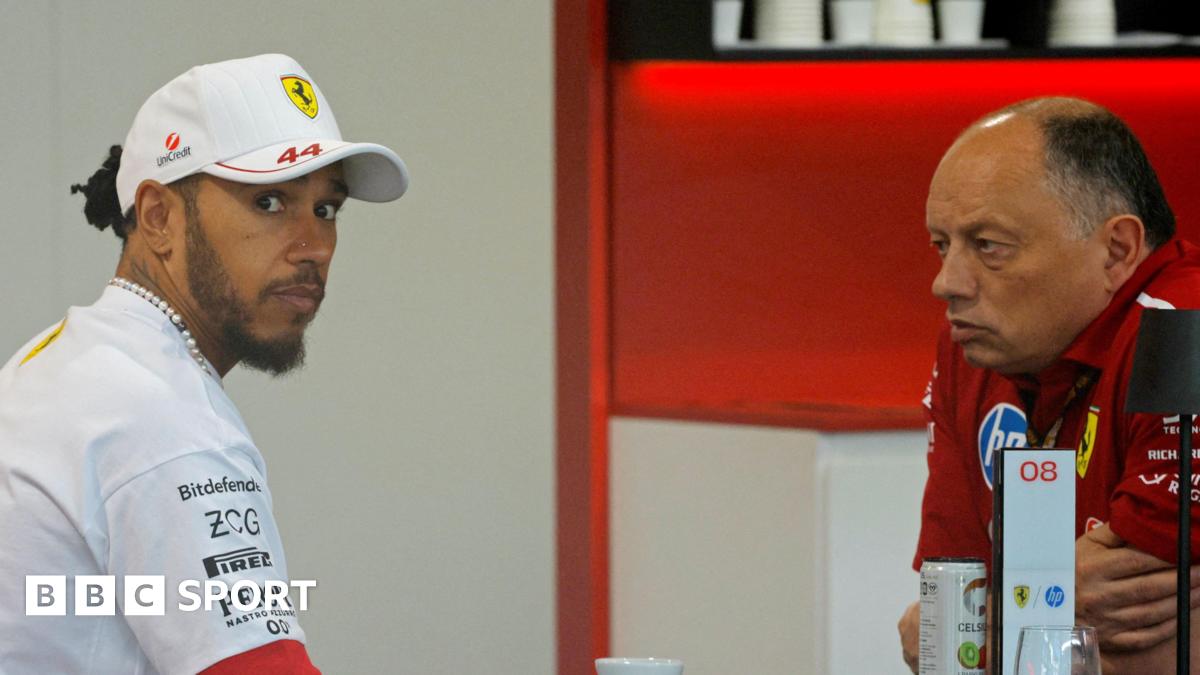














![Makola shares glory in visceral “Stone Roses” visual [Music Video]](https://earmilk.com/wp-content/uploads/2025/05/A-5.jpg)








